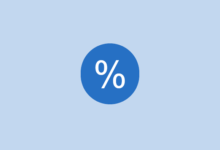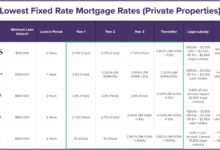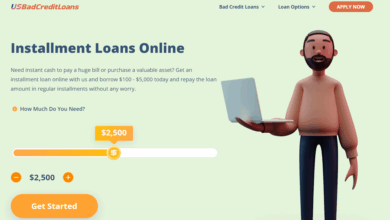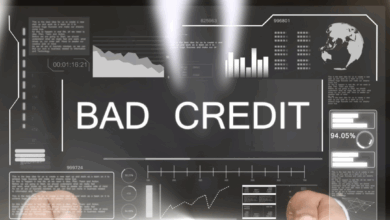Small Loans For Bad Credit: Accessing Financial Assistance With Imperfect Credit
Small loans for bad credit offer a lifeline to individuals facing financial challenges due to credit issues. As we delve into the realm of small loans tailored for those with imperfect credit scores, a world of possibilities and opportunities unfolds.
Overview of Small Loans for Bad Credit
Small loans are typically small amounts of money borrowed from a lender that are intended to be repaid within a short period of time. These loans are often used for immediate financial needs or emergencies.
Bad credit refers to a low credit score or a history of missed payments, defaults, or other negative marks on a person’s credit report. Having bad credit can make it difficult to qualify for traditional loans and may result in higher interest rates or less favorable terms.
Examples of Small Loan Options for Individuals with Bad Credit
- Payday loans
- Installment loans
- Personal loans for bad credit
Importance of Small Loans for People with Bad Credit
Small loans provide individuals with bad credit access to much-needed funds in times of financial hardship or emergencies. These loans can help cover unexpected expenses and bridge the gap until the next paycheck.
Applying for Small Loans with Bad Credit
When applying for small loans with bad credit, individuals may need to provide proof of income, identification, and other documentation. Eligibility criteria may vary depending on the lender, but typically focus on the ability to repay the loan.
Interest Rates and Repayment Terms
Interest rates on small loans for individuals with bad credit are generally higher than those for borrowers with good credit. Repayment terms may be shorter, and penalties for late payments or defaults can be significant.
Secured vs. Unsecured Small Loans
Secured small loans require collateral, such as a car or property, to secure the loan. Unsecured loans do not require collateral but may come with higher interest rates due to the increased risk for the lender.
Tips for Improving Credit Score
- Make timely payments on existing debts
- Keep credit card balances low
- Monitor credit report for errors and dispute inaccuracies
Pros and Cons of Small Loans for Bad Credit
When considering small loans for individuals with bad credit, there are both advantages and disadvantages to take into account. Let’s explore the pros and cons of opting for small loans despite having a poor credit history.
Advantages of Small Loans for Bad Credit
- Accessibility: Small loans are often more accessible to individuals with bad credit compared to traditional loans from banks or financial institutions.
- Quick Approval: These loans typically have a faster approval process, allowing borrowers to receive funds in a timely manner during emergencies.
- Improving Credit Score: By making timely payments on small loans, individuals with bad credit can gradually improve their credit score over time.
- Flexible Terms: Some lenders offer flexible repayment terms for small loans, making it easier for borrowers to manage their finances.
Disadvantages of Small Loans for Bad Credit
- Higher Interest Rates: Due to the higher risk associated with bad credit, small loans often come with higher interest rates, increasing the overall cost of borrowing.
- Limited Loan Amounts: Individuals with bad credit may only qualify for small loan amounts, which may not be sufficient to meet larger financial needs.
- Potential for Debt Trap: Taking out multiple small loans without a solid repayment plan can lead to a cycle of debt, making it challenging to break free from financial struggles.
- Scams and Predatory Lenders: Some lenders targeting individuals with bad credit may engage in predatory practices or scams, putting borrowers at risk of falling into further financial distress.
Comparison of Benefits and Drawbacks
While small loans for bad credit offer quick access to funds and the opportunity to rebuild credit, borrowers must be mindful of higher interest rates and potential debt traps. It is essential to weigh the benefits against the risks before taking out a small loan.
Eligibility Criteria for Small Loans with Bad Credit
When it comes to obtaining small loans with bad credit, there are specific eligibility requirements that borrowers need to meet in order to qualify for the loan. Here is an overview of the typical criteria:
Minimum Credit Score, Income Level, and Employment Status
- Minimum Credit Score: Lenders typically consider borrowers with credit scores ranging from 300 to 650 for small loans with bad credit. However, some lenders may have different requirements, so it’s essential to check with the specific lender.
- Income Level: Borrowers are usually required to have a steady income to demonstrate their ability to repay the loan. The minimum income level varies depending on the lender and the loan amount.
- Employment Status: Lenders may require borrowers to be employed or have a stable source of income to qualify for a small loan with bad credit. Some lenders may accept alternative sources of income, such as alimony or social security benefits.
Alternative Criteria
- Co-signer: If the borrower’s credit score is below the lender’s threshold, having a co-signer with a good credit score can increase the chances of loan approval.
- Collateral: Some lenders may require collateral, such as a vehicle or property, to secure the loan in case the borrower defaults.
- Proof of Payment History: Demonstrating a consistent payment history on other bills, such as rent or utilities, can also be considered by lenders when evaluating eligibility for a small loan with bad credit.
Types of Small Loans for Bad Credit
When it comes to small loans for individuals with bad credit, there are different types of options available depending on the lender and the borrower’s financial situation.
Secured Small Loans
Secured small loans for bad credit require collateral, such as a vehicle or property, to secure the loan. This reduces the risk for the lender, making it easier for individuals with bad credit to qualify for a loan. Examples of lenders offering secured small loans include OneMain Financial and Avant.
Unsecured Small Loans
Unsecured small loans for bad credit do not require collateral but may come with higher interest rates to compensate for the increased risk to the lender. Lenders like LendingClub and Prosper offer unsecured small loans to individuals with bad credit.
Application Process
To apply for small loans with bad credit, borrowers typically need to provide proof of income, identification, and bank account information. Lenders may also require a credit check, but some specialize in loans for individuals with bad credit.
Interest Rates and Repayment Terms
Interest rates for small loans with bad credit can vary significantly depending on the lender and the borrower’s creditworthiness. Repayment terms may range from a few months to several years, with fixed or variable rates.
Approval Rates and Turnaround Times
Lenders specializing in small loans for bad credit often have higher approval rates than traditional banks. Turnaround times for approval and funding can be quick, sometimes within the same day of application.
Responsible Borrowing
It is essential for individuals with bad credit to manage their small loans responsibly to avoid further damaging their credit scores. Making timely payments and not borrowing more than needed can help improve creditworthiness over time.
Application Process for Small Loans with Bad Credit
When applying for small loans with bad credit, it’s important to understand the steps involved, the documentation required, and how to improve your chances of approval.
Steps to Apply for Small Loans with Bad Credit
- Research Lenders: Look for lenders who specialize in providing small loans for individuals with bad credit.
- Check Eligibility: Make sure you meet the eligibility criteria set by the lender before applying.
- Submit Application: Fill out the application form with accurate information and submit it online or in person.
- Provide Documentation: Be prepared to submit documents such as proof of income, identification, and bank statements.
- Wait for Approval: After submitting your application, wait for the lender to review and approve your loan.
- Receive Funds: Once approved, the funds will be disbursed to your bank account.
Documentation Required During the Application Process
- Proof of Income: Pay stubs, tax returns, or bank statements to show your ability to repay the loan.
- Identification: A valid ID such as a driver’s license or passport to verify your identity.
- Bank Statements: To demonstrate your financial stability and history of transactions.
- Other Documents: Any additional documents requested by the lender to assess your creditworthiness.
Tips for Improving Chances of Approval for Small Loans with Bad Credit
- Improve Credit Score: Work on improving your credit score before applying for a loan by paying off debts and bills on time.
- Add a Co-Signer: Consider adding a co-signer with good credit to increase your chances of approval.
- Show Stability: Provide proof of stable income and employment to assure the lender of your ability to repay the loan.
- Shop Around: Compare offers from different lenders to find the best terms and rates for your situation.
Interest Rates and Fees on Small Loans for Bad Credit
When it comes to small loans for bad credit, it’s important to understand how interest rates and fees are determined. These factors can significantly impact the overall cost of borrowing and should be carefully considered before taking out a loan.
Interest Rates for Small Loans with Bad Credit
Interest rates for small loans with bad credit are typically higher than those for borrowers with good credit scores. Lenders view individuals with bad credit as higher risk, so they compensate for this risk by charging higher interest rates. The exact interest rate you receive will depend on factors such as the lender, loan amount, repayment term, and your credit history.
- Payday Loans: These short-term loans often come with extremely high-interest rates, sometimes reaching triple digits on an annual percentage rate (APR) basis.
- Installment Loans: Interest rates for installment loans can vary widely but generally range from 6% to 36% APR, depending on the lender and your credit profile.
- Personal Loans: Interest rates for personal loans for bad credit can range from 10% to 36% APR, with some online lenders offering rates even higher.
Fees Associated with Small Loans for Bad Credit
In addition to interest rates, borrowers with bad credit may also face additional fees when taking out a small loan. These fees can include origination fees, late payment fees, prepayment penalties, and more. It’s essential to carefully review the loan terms and conditions to understand all the fees associated with the loan before signing any agreement.
- Origination Fees: Some lenders charge an origination fee when the loan is funded, typically ranging from 1% to 6% of the loan amount.
- Late Payment Fees: If you miss a payment, lenders may charge a late fee, which can range from $15 to $50 or more.
- Prepayment Penalties: Some loans carry prepayment penalties if you pay off the loan early, costing you extra money.
Repayment Options for Small Loans with Bad Credit
When it comes to repaying small loans with bad credit, borrowers have a few options available to them. It’s important to understand these repayment terms and strategies to effectively manage your loan obligations and avoid defaulting.
Repayment Terms for Small Loans with Bad Credit
- Monthly Installments: Many lenders offer repayment plans that require borrowers to make fixed monthly payments until the loan is fully repaid.
- Bi-weekly Payments: Some lenders may allow borrowers to make payments every two weeks, which can help reduce the overall interest paid over the life of the loan.
- Automatic Withdrawals: Setting up automatic withdrawals from your bank account can ensure timely payments and avoid late fees.
Strategies for Managing Repayment of Small Loans with Bad Credit
- Create a Budget: Develop a budget that includes your loan payments to ensure you can afford them each month.
- Make Extra Payments: Whenever possible, try to make extra payments towards your loan principal to reduce the overall interest costs.
- Contact Your Lender: If you’re facing financial difficulties, reach out to your lender to discuss alternative repayment options or temporary relief.
Consequences of Defaulting on a Small Loan for Individuals with Bad Credit
- Damage to Credit Score: Defaulting on a loan can significantly impact your credit score, making it harder to secure loans in the future.
- Collection Actions: Lenders may pursue collection actions to recover the outstanding debt, which can lead to additional fees and legal consequences.
- Lawsuits: In extreme cases, lenders may take legal action against borrowers to force repayment of the loan.
Impact of Small Loans on Credit Score
Taking out small loans can have a significant impact on the credit score of individuals with bad credit. While it may seem counterintuitive to borrow money when already struggling with credit, when used responsibly, small loans can actually help improve one’s credit score over time.
Using Small Loans to Improve Credit Score
- Make timely repayments: Paying back small loans on time demonstrates financial responsibility and can positively impact your credit score.
- Keep balances low: Avoid maxing out your small loan as high credit utilization can negatively affect your credit score.
- Diversify credit mix: Having a mix of different types of credit, including small loans, can show lenders that you can manage various forms of credit responsibly.
Importance of Timely Repayment in Rebuilding Credit
- Timely repayments are crucial: Late or missed payments can have a detrimental effect on your credit score, making it harder to rebuild your credit.
- Build a positive payment history: Consistently making on-time payments on small loans can help establish a positive payment history, which is a key factor in credit scoring.
- Rebuilding credit takes time: Patience is key when using small loans to rebuild credit. It may take several months or even years to see a significant improvement in your credit score.
Alternatives to Small Loans for Bad Credit
When individuals have bad credit and are in need of financial assistance, there are alternative options to small loans that they can consider. These alternatives come with their own set of benefits and drawbacks, which should be carefully evaluated before making a decision. Exploring these options can help individuals make the best choice based on their specific financial situation.
Credit Unions
Credit unions are non-profit financial institutions that offer loans to their members at lower interest rates compared to traditional banks. They often consider factors beyond credit scores when evaluating loan applications, making them a viable option for individuals with bad credit.
Secured Credit Cards
Secured credit cards require a security deposit that serves as collateral against the credit limit. By responsibly using a secured credit card and making timely payments, individuals can rebuild their credit score over time. However, these cards may come with high fees and interest rates.
Peer-to-Peer Lending
Peer-to-peer lending platforms connect borrowers with individual investors willing to fund their loans. These platforms may be more flexible in their lending criteria and offer competitive interest rates. However, individuals with bad credit may face higher rates and fees.
Family and Friends
Borrowing from family and friends can be an alternative to traditional lending institutions. However, it is important to formalize the agreement with a written contract to avoid misunderstandings. While this option may not involve credit checks or high interest rates, it can strain personal relationships if not managed carefully.
Risks and Considerations of Small Loans for Bad Credit
When considering small loans for bad credit, it is crucial to understand the potential risks involved and factors to consider before applying. These loans can be helpful in certain situations, but they also come with their own set of challenges that need to be carefully evaluated.
Potential Risks Associated with Small Loans for Bad Credit
- High Interest Rates: Small loans for bad credit often come with higher interest rates compared to traditional loans, increasing the overall cost of borrowing.
- Short Repayment Terms: These loans may have shorter repayment terms, making it challenging for borrowers to meet the payment deadlines.
- Impact on Credit Score: Defaulting on small loans for bad credit can further damage your credit score, making it harder to qualify for loans in the future.
Factors to Consider Before Applying for a Small Loan with Bad Credit
- Evaluate Your Financial Situation: Assess your ability to repay the loan on time and consider if you have any other alternatives available.
- Compare Lenders: Research different lenders offering small loans for bad credit to find the most favorable terms and conditions.
- Understand the Terms: Read and understand the terms and conditions of the loan agreement to avoid any surprises later on.
Recommendations to Mitigate Risks when Considering Small Loans with Bad Credit
- Create a Repayment Plan: Develop a repayment plan to ensure you can meet the loan obligations on time and avoid defaulting.
- Seek Financial Counseling: Consider seeking advice from a financial counselor to help you manage your finances and make informed decisions.
- Explore Alternatives: Look into other options such as borrowing from family or friends, or finding ways to improve your credit score before taking out a small loan.
Regulations and Consumer Protections for Small Loans with Bad Credit
When it comes to small loans for bad credit, there are specific regulations in place to protect consumers and ensure fair lending practices. These regulations aim to prevent predatory lending and provide safeguards for individuals with bad credit who may be more vulnerable to financial exploitation.
Regulations for Small Loans with Bad Credit
- One of the key regulations in place is the Truth in Lending Act (TILA), which requires lenders to disclose the full terms and costs of a loan to borrowers. This includes the annual percentage rate (APR), fees, and repayment terms.
- Another important regulation is the Fair Credit Reporting Act (FCRA), which ensures the accuracy and privacy of consumer credit reports. Lenders must adhere to this act when assessing a borrower’s creditworthiness.
- The Consumer Financial Protection Bureau (CFPB) also plays a crucial role in regulating the lending industry and enforcing consumer protection laws. Individuals can file complaints with the CFPB if they encounter issues with small loans for bad credit.
Consumer Protections for Small Loans with Bad Credit
- Lenders offering small loans to individuals with bad credit must comply with the Equal Credit Opportunity Act (ECOA), which prohibits discrimination based on race, color, religion, national origin, sex, marital status, age, or receipt of public assistance.
- Borrowers also have the right to access free credit reports annually from the three major credit bureaus – Equifax, Experian, and TransUnion. This transparency helps individuals monitor their credit history and report any inaccuracies.
- If consumers believe they have been subjected to unfair lending practices or have been misled by a lender, they can seek assistance from state consumer protection agencies or legal aid organizations.
Case Studies or Success Stories with Small Loans for Bad Credit
Small loans for bad credit have been instrumental in helping individuals improve their financial situations and rebuild their credit despite facing challenges.
Successful Financial Turnaround
- An individual with bad credit utilized a small loan to consolidate high-interest debts, lowering overall monthly payments.
- By making timely repayments on the small loan, the individual improved their credit score over time.
- This success story highlights the importance of responsible borrowing and repayment behavior in rebuilding credit.
Financial Education and Small Loans
- Another case involved a person seeking financial counseling alongside a small loan to better manage their finances.
- Through budgeting techniques learned during financial counseling, the individual effectively utilized the small loan for necessary expenses.
- Combining financial education with small loans can lead to long-term financial stability and credit improvement.
Different Types of Small Loans Impact
- A comparison between payday loans and installment loans showed that installment loans provide more manageable repayment terms for individuals with bad credit.
- Individuals who opted for installment loans experienced less financial strain due to the structured repayment schedule.
- The type of small loan chosen can significantly impact the borrower’s financial well-being and credit rebuilding efforts.
Tips for Borrowers Considering Small Loans with Bad Credit
When it comes to applying for small loans with bad credit, there are several important tips to keep in mind to ensure a smooth borrowing experience and financial stability.
Responsible Loan Management
Managing small loans responsibly is crucial for individuals with bad credit to avoid further financial strain. Here are some tips:
- Only borrow what you need and can afford to repay.
- Make timely payments to avoid additional fees or penalties.
- Communicate with your lender if you encounter difficulties in repayment.
Maximizing Loan Opportunity
To make the most out of a small loan despite bad credit, consider the following strategies:
- Use the loan to consolidate high-interest debts for better financial management.
- Invest in improving your skills or education for future financial growth.
- Start a small business or side hustle to increase your income.
Improving Credit Score
While repaying a small loan, you can work on improving your credit score by:
- Making timely payments to demonstrate financial responsibility.
- Keeping credit utilization low to show good credit management.
- Checking your credit report regularly for errors and disputing inaccuracies.
Understanding Terms and Conditions
Before taking out a small loan, it is essential to understand the terms and conditions to avoid hidden fees or surprises. Remember:
- Read the loan agreement carefully and ask questions if anything is unclear.
- Be aware of all fees, including interest rates, origination fees, and prepayment penalties.
- Know the consequences of late payments or defaulting on the loan.
Creating a Budget Plan
To ensure timely repayment of the small loan, creating a budget plan can be highly beneficial. Consider:
- Tracking your income and expenses to allocate funds for loan repayment.
- Cutting unnecessary expenses to free up money for loan payments.
- Setting aside an emergency fund to cover unexpected costs and prevent defaulting on the loan.
Exploring Alternative Lending Options
If traditional lenders are not an option due to bad credit, explore alternative lending sources such as:
- Online lenders specializing in bad credit loans.
- Credit unions offering small loans with flexible terms for members.
- Peer-to-peer lending platforms connecting borrowers with individual investors.
Reputable Lenders for Small Loans
When choosing a lender for a small loan with bad credit, consider reputable options like:
- LendingClub: A peer-to-peer lending platform known for its transparent terms.
- OneMain Financial: A lender offering personal loans even to individuals with bad credit.
- Avant: Specializing in unsecured personal loans for borrowers with less-than-perfect credit.
Future Trends and Innovations in Small Loans for Bad Credit
In the ever-evolving landscape of small loans for individuals with bad credit, several trends and innovations are reshaping the industry to better cater to the needs of this underserved market segment. Let’s explore some of the key developments that are expected to influence the future of small loans for bad credit applicants.
Role of Alternative Data Sources in Assessing Creditworthiness
Alternative data sources, such as social media activity or rental payment history, are increasingly being utilized by lenders to assess the creditworthiness of individuals with bad credit. These non-traditional data points provide a more comprehensive view of an applicant’s financial behavior and can help lenders make more informed lending decisions.
Impact of Decentralized Finance (DeFi) Platforms
Decentralized finance (DeFi) platforms are disrupting the traditional lending landscape by offering decentralized, peer-to-peer lending opportunities. These platforms leverage blockchain technology to provide transparent, secure, and efficient lending services, potentially increasing the accessibility of small loans for individuals with bad credit scores.
Ethical Implications of AI Algorithms in Loan Eligibility
The use of AI algorithms to determine loan eligibility raises ethical concerns regarding fairness and transparency in the lending process. It is crucial for lenders to ensure that AI-driven decisions do not perpetuate bias or discrimination against individuals with bad credit.
Influence of Microfinancing Institutions and Community-Based Lending Programs
Microfinancing institutions and community-based lending programs play a vital role in expanding access to small loans for individuals with bad credit. These initiatives focus on providing financial support to underserved communities and promoting financial inclusion through tailored lending solutions.
Last Recap
In conclusion, small loans for bad credit serve as a crucial tool for individuals seeking financial stability and growth despite credit hurdles. By understanding the nuances of these loans, individuals can pave the way towards a brighter financial future.







